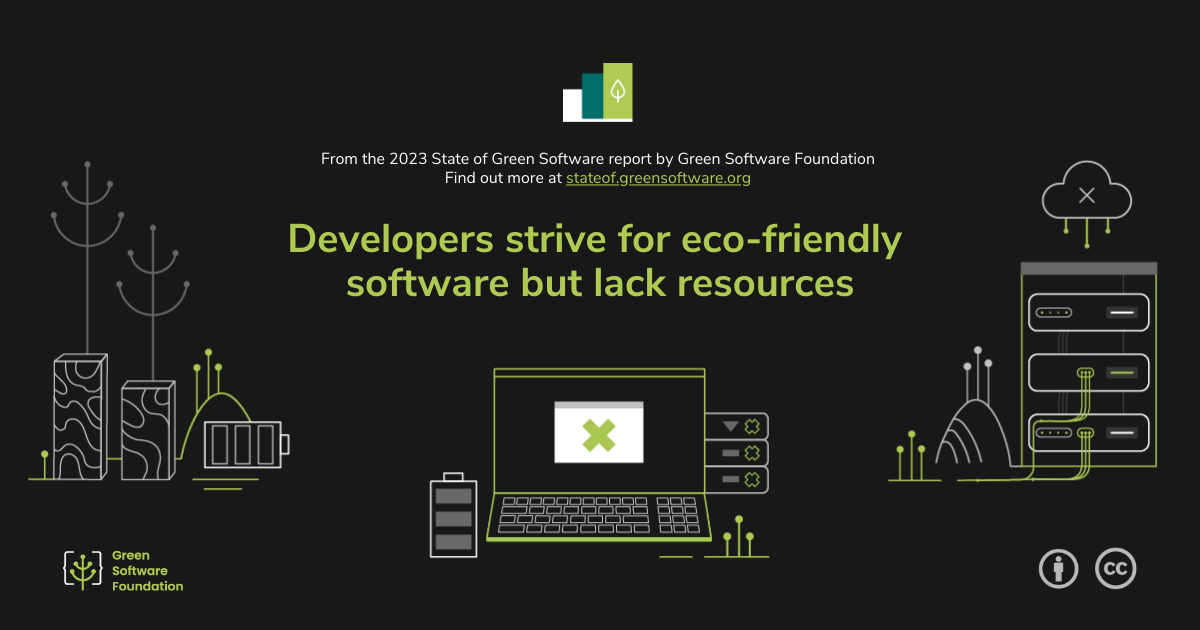As the President of Microsoft said in a November 2022 statement, companies will have trouble meeting their net zero goals unless they begin systematically training their employees in sustainability by bringing in instructors, formal training modules, and continuing education programs. Likewise, developers need buy-in from management to focus their efforts on green software. Passionate volunteers actively working on carbon-aware and energy-efficient technology need support to implement and scale their technology.
For example, one SOGS survey respondent shared, “I want to do it all but I don’t know how yet.” Another respondent said, “I don’t do much yet because of a lack of tools, KPIs, and customer willingness.” Another respondent shared that they did not take any steps to reduce emissions because their employer did not see the value.
It is evident that there is much work to be done to fix the knowledge and tooling gap and to educate customers about the commercial viability of green software and the business case behind applying green software principles. ** **A 2022 BCG survey found that many organizations were slow to adopt measures that would help them meet their net zero goals, and that the lack of tools to comprehensively measure and report scope 3 emissions, in particular, remained a barrier. While 92% of overall emissions are scope 3 emissions, BCG found that only 12% of survey respondents viewed scope 3 emissions as a priority.
With C-suite input and management support, software practitioners will be better positioned to develop the tools and solutions needed to meet climate goals. Research points to some areas that require C-suite support. Accenture’s United Technology and Sustainability report highlights how CIOs can significantly impact an organization’s path toward sustainability. But researchers found that only 49% of CIOs are on leadership teams setting sustainability goals, and only 7% of companies have integrated their technology and sustainability strategies. According to the Accenture report, an effective sustainability technology strategy can help a company jump by 11% in its ESG ranking. Having the right data is an important first step in organizations reaching their ESG goals. As Accenture suggests, “To define their ESG KPIs and report them effectively, companies need to gain insights into what matters to their stakeholders. Organizations must be able to make informed decisions based on data and insights.” Executive support is needed to translate insights into changes to day-to-day operations.
